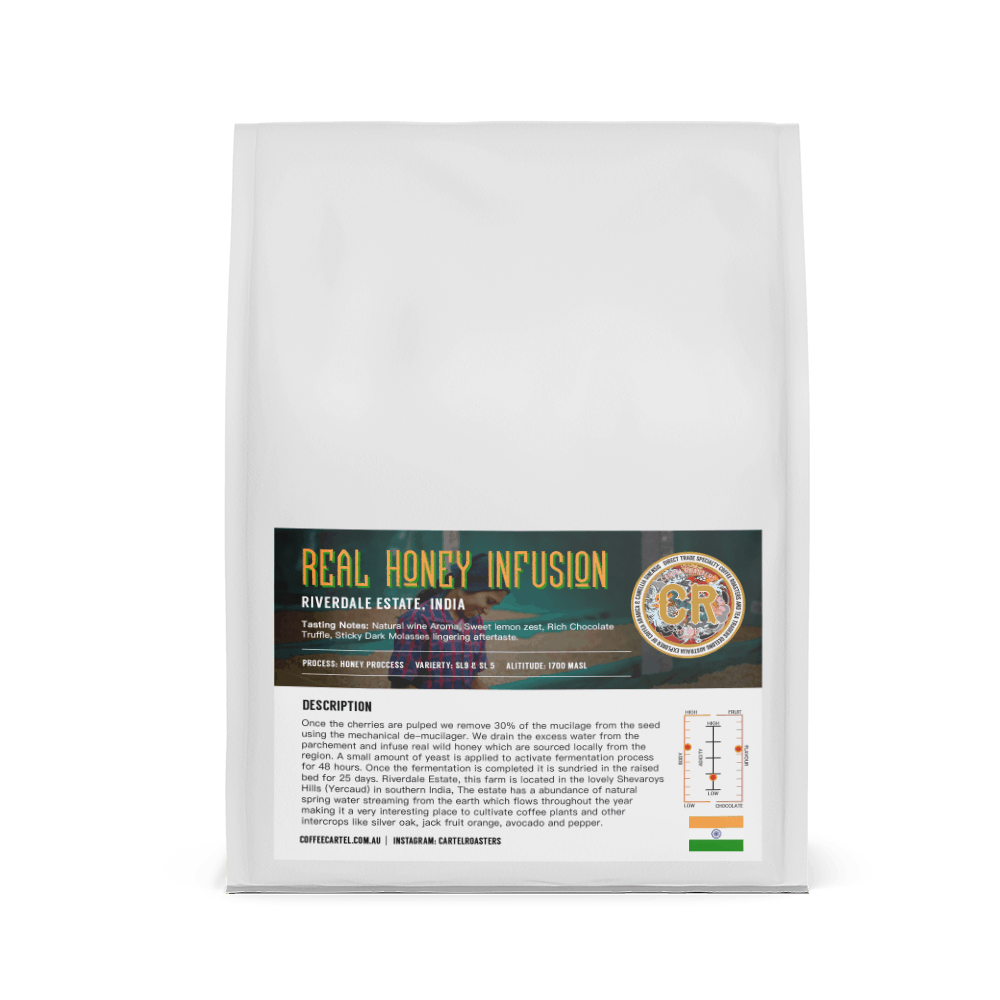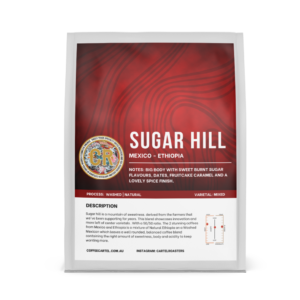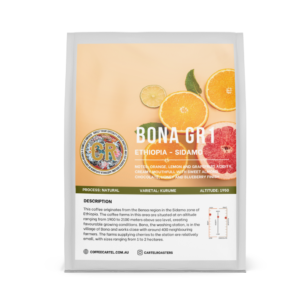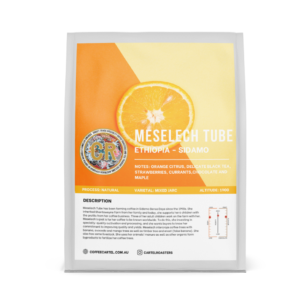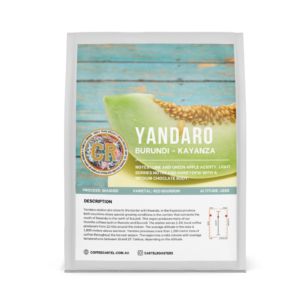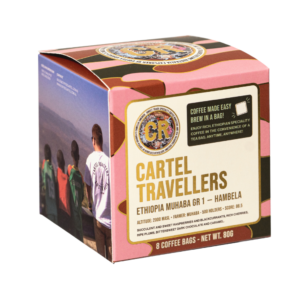About this coffee
- Altitude: 1450-1700MASL
- Farmer: PRAKESH BALARAMAN - RIVERDALE ESTATE
- Score: 87.5
- COUNTRY: INDIA
Tasting Notes: Natural wine Aroma, Sweet lemon zest, Rich Chocolate Truffle, Sticky Dark Molasses lingering aftertaste.
The world of experimental coffee is upon us! We are proud to be working with the team from Riverdale Estate India on this project, this was an opportunity that worked hand in hand with each others philosophy of creating excellence in coffee production and is also to ensure that the coffee we produced is one of the best in the country.
Once the cherries are pulped we remove 30% of the mucilage from the seed using the mechanical de-mucilager. We drain the excess water from the parchement and infuse real wild honey which are sourced locally from the region. A small amount of yeast is applied to activate fermentation process for 48 hours. Once the fermentation is completed it is sundried in the raised bed for 25 days. Riverdale Estate, this farm is located in the lovely Shevaroys Hills (Yercaud) in southern India.
The plantation sits at an altitude of 1450 meter and reaches a height of over 1700 masl which is where all of our coffees and exclusively picked for our experiments conducted at the farm which include Natural process, Honey process and fully washed Kenyan style processing. We have also managed to conduct three years of ongoing experimental processing using yeasts combined with fruits.
The common varietal grown is Selection 9 and S5b variety of Arabica they have also planted several test exotic varietals of gesha and yellow bourbon.
All the Coffee is grown under tall trees Shade that helps to retain moisture level and biodiversity within the plantation. We believe in sustainable farming which improves the soil quality, & in turn gives us the consistent coffee beans year after year which we only improve through consistent monitoring of daily occurrences through the carful processing months like weather, water conditions , fermentation temperatures and separation of micro-lots and drying times.
Enjoy these lots I believe they are continuing to push the boundaries of quality in India and am proud to be apart of the team.
Coffee in India was started when Saint Babba Budan first smuggled Seeds from Yemen. Nuns from his hermitage first brought them to India and it was primarily a crop grown out of curiosity in people’s’ personal gardens. In the 1800’s coffee became commercialised with the British conquest of of India. Because of the mismanagement of farms Arabica was difficult to grow and pests and leaf rust decimated crops. Robusta became India’s prime coffee export for much of the 1800’s, hence why Robusta is exchanged in the London exchange.
In the early 20th century Arabica saw a resurgence in India due to some research from the British-Indian Government into disease prevention, soil maintenance and better farming techniques. Shortly before Indian Independence the Indian coffee board was established via the Indian Coffee Act 1942. The board established a central governing body overseeing growing research, import and export data, overseas promotion and farming assistance.
As of 2018 Indian coffee has seen an overall steady growth trend of both production and export. Arabica and robusta have been planted in about equal parts since about 1960, however the production of India currently leans about 70% robusta. 70% of farms are small holdings (Classified as holdings less than 10 Hectares). On average a farm worker in India earns 261 Rupees a day ($3.81 USD).
Specialty coffee data in India is difficult to come by as Indian government classification of Specialty coffee is based on what should more be called ‘specialised coffee’. The specialization coming from a special process called “Monsoon Malabar.” The process entails the cherries being sun dried, and then exposed to monsoon winds, rains, and humidity (Editors note, not great for coffee, but can be great whiskey). The beans expand and contract with the pressure changes. When the process is finished (After almost 3 months) the beans have a more yellow colour as opposed to the usual green. The resulting flavour tends to be a very heavy body with some nuts and spices, however there tends to also be a lingering dryness.
Some of the reason this coffee is considered specialty has to do with India’s grading system which follows a style similar to Kenya, based on Size. Monsoon Malabar can only be AAA, AA, and A. Premium coffee includes all the A sizes, as well as PB, while the rest of coffee is classed as C grade or bulk. It is important to note that none of these grades have anything to do with growing or processing quality, it merely reflects size.
India is the 6th largest exporter of Coffee in the world with almost 70% of its total yield going overseas. 20-25% of that goes to Italy, with Russia, Turkey, Belgium and Germany making up the rest of the top 5 of Indian coffee exports.
Welcome to Riverdale Estate, this farm is located in the lovely Shevaroys Hills (Yercaud) in southern India, The estate has a abundance of natural spring water streaming from the earth which flows throughout the year making it a very interesting place to cultivate coffee plants and other intercrops like silver oak, jack fruit orange, avocado and pepper.

